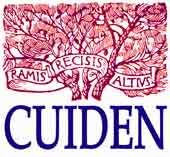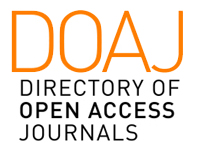Reflections on occupation, cultural identities and social transformation
DOI:
https://doi.org/10.25214/25907816.161Palabras clave:
occupation, culture, folk music, personal narrativesResumen
When I was so kindly invited to the XVI CCTO conference this past year in Medellin, one of the lasting impressions of that short visit was the folk cultural content, using music and dance, of many of the presentations. This made it a very different experience to other occupational therapy conferences I have attended. The significance of cultures seemed integral to practice, for example with indigenous people and with people living in rural areas, as well as to the positioning of occupational therapy in its historic place within recent Colombian history. What was very different to me as a British person was that these performances involved something that everyone seemed to know and to be able to participate in. The strength of this shared aspect of culture, which may reflect some aspects of the rich variety of traditions in Colombia, was impressive. It led me to reflect on the community focus of human purposeful occupation as t he ‘collective doing’ that constitutes culture. This reflective paper will discuss some aspects of occupation and culture as the product of collective doing for the community focus of human purpose. It will consider occupation and culture against the background of the use of occupation for health, and as a basis for socially transformative practices. It will draw on some aspects of Colombian and UK folk cultures and some of the reasons why practitioners might be careful to respect the integrity of these assets, as well as their capacity for innovation, adaptation and change as living culture.
Descargas
Referencias bibliográficas
Arango Peláez, J.A., Nieto Martin, J.O. & Rincón González, F.A. (2013). Transformación ocupacional en hombres y reconocimiento de la memoria indígena muisca “Cabildo de Bosa” (Tesis de pregrado). Bogotá: Universidad Nacional de Colombia.
Bauman, Z. (2001). Community: Seeking Safety in an Insecure World. Oxford: Polity.
Bonder, B. R., Martin, L., & Miracle, A. W. (2004). Culture emergent in occupation. American Journal of Occupational Therapy, 58, 159–168.
Bose, P.S. (2004), Critics and experts, activists and academics: Intellectuals in the fight for social and ecological justice in the Namada Valley, India. En M. Baud y R. Rutten (eds.) Popular intellectuals and social movements: Framing protest in Asia, Africa, and Latin America (pp.133-157). Cambridge: Cambridge University Press.
Brocken, M. (2003). The British Folk Revival: 1944–2002. Aldershot: Ashgate.
Burgess, J. (2006). Hearing ordinary voices: Cultural studies, vernacular creativity and digital storytelling. Continuum, 20(2), 201-214.
Cannadine, D. (1983). The context, performance and meaning of ritual: The British monarch and the ‘invention of tradition 1820-1977. En E. Hobsbawm (ed.) The invention of tradition (pp.101-164). Cambridge: Cambridge University Press.
Castro, L.R. (2012). Construcción de historias de vida: una evaluación narrativa para la intervención de terapia ocupacional en personas con discapacidad psiquiátrica. Revista electrónica de Terapia Ocupacional Galicia, TOG, (16), 11-11.
Collins, S. (1967). The sweet primeroses. London: Topic Records.
Connor, M. (2000). Recreational folk dance: A multicultural exercise component in healthy ageing. Australian Occupational Therapy Journal, 47( 2), 67-76.
Cressy, D. (2004) Bonfires and bells: National memory and the protestant calendar in Elizabethan and Stuart England. Stroud: Sutton.
Dehays, M., Hichins, M. & Vidal, V. (2012). Análisis del significado de las ocupaciones atribuidas a ser mujer y madre para mujeres con discapacidad intelectual en la ciudad de Punta Arenas. Revista Chilena de Terapia Ocupacional, 12(2). Disponible en: http://200.89.78.45/index.php/RTO/article/viewArticle/25301
De-las-Heras, B. (2009). “ Ell@ s” también pueden bailar flamenco. En El largo camino hacia una educación inclusiva: la educación especial y social del siglo XIX a nuestros días: XV Coloquio de Historia de la Educación, Pamplona-Iruñea, 29, 30 de junio y 1 de julio de 2009 (pp. 477-486). Universidad Pública de Navarra.
Echavarría, J. M. (2004). Bocas de Ceniza (Mouths of Ash). https://vimeo.com/31130555 .
Eyerman, R. (2002). Music in Movement: Cultural Politics and Old and New Social Movements. Qualitative Sociology, 25 (3), 443-458.
Foot, K. A. (2001). Cultural‐historical activity theory as practice theory: illuminating the development of conflict‐monitoring network. Communication Theory, 11(1), 56-83.
Foot, K. A. (2014). Cultural-historical activity theory: Exploring a theory to inform practice and research. Journal of Human Behavior in the Social Environment, 24(3), 329-347.
Garbutt, R. (2016). Everyday peace, human rights, belonging and activism in a ‘peaceful’ nation. En G. Bee Chen, B. Offord & R. Garbutt (eds.) Activating Human Rights and Peace: Theories, Practices and Contexts (pp.143-158). Abingdon: Routledge.
García, M. E. P. (2014). Music and reconciliation in Colombia: opportunities and limitations of songs composed by victims. Music and Arts in Action, 4(2), 24-51.
Gil, G.A.L. (2015). ¿Música vieja, música nueva? Procesos de cambio cultural en la práctica de las cuerdas tradicionales andinas de Colombia, transición al siglo XXI. Artes la Revista,10(17), 140-157.
Goebel, N. (2011). Fags, Blacks and Hutterites: Challenging Prejudice and Stereotypes with the augustana human library. Disponible en http://s3.amazonaws.com/academia.edu.documents/17533195/fags_blacks.pdf?AWSAccessKeyId=AKIAJ56TQJRTWSMTNPEA&Expires=1473079421&Signature=8xARUhKvRDfOT%2F%2BJr2Xv2v3CzIY%3D&response-content-disposition=inline%3B%20filename%3DFags_Blacks_and_Hutterites_Challenging_P.pdf
Goldblatt, E. (2007). Because we live here: Sponsoring literacy beyond the college curriculum. New Jersey: Hampton Press.
Gramsci, A. (1971). Selections from the prison notebooks. Editado y traducido por Quintin Hoare y Geoffrey Nowell-Smith. London: Lawrence and Wishart.
Guajardo, A. & Mondaca, M. (2016). Human rights, occupational therapy and the centrality of social practices. En D. Sakellariou, N. Pollard (eds.) Occupational therapies without borders: Integrating justice with practice (pp.102-108). Edinburgh: Elsevier.
Hall, R. (1998) Introduction to the series. En R. Hall (ed.) The Voice of the People (pp.3-10). London: Topic Records.
Hammell, K.W., 2009. Sacred texts: A sceptical exploration of the assumptions underpinning theories of occupation. Canadian Journal of Occupational Therapy, 76(1), .6-13.
Heathcote, J. & Hong, C.S. (2009). Groupwork as a tool to combat loneliness among older people: Initial observations. Groupwork, 19(2), 121-130.
Hield, F. (2010). English folk singing and the construction of community (PhD thesis). University of Sheffield, Sheffield, United Kingdom. Disponible en http://etheses.whiterose.ac.uk/1544/4/Hield,_Fay.pdf
Hong, C.S., Heathcote, J., & Hibberd, J.M. (2011). Group and individual work with older people. London: Jessica Kingsley.
Kearney, D. (2007). (Re)locating Irish Traditional Music: Urbanising Rural Traditions. Critical Public Geographies (Documento de trabajo UCC Cork Ireland) Disponible en http://s3.amazonaws.com/academia.edu.documents/30841616/kearney.pdf?AWSAccessKeyId=AKIAJ56TQJRTWSMTNPEA&Expires=1474218395&Signature=CI7%2BKSv%2B%2BRiGi7Wra95VOXtnmWc%3D&response-content-disposition=inline%3B%20filename%3DRe_locating_Irish_Traditional_Music_Urb.pdf
Little, N., Nemutlu, G., Magic, J., & Molnár, B. (2011). Don’t judge a book by its cover! The Living Library Organiser’s Guide 2011. Budapest: Youth Department of the Council of Europe. Disponible en https://www.coe.int/t/dg4/eycb/Source/EYCB%20Living%20Library.pdf
Little, N. & Abergel, R. (2013). Human library. A short guide for Organisers. Copenhagen: The Human Library Organisation/The Outsiders.
Martin, G. (2002). Conceptualizing Cultural Politics in Subcultural and Social Movement Studies. Social Movement Studies, 1(1), 73-88. DOI: http://dx.doi.org/10.1080/14742830120118909
Mathieu, P., Parks, S., & Rousculp, T. (eds.). (2012). Circulating communities: The tactics and strategies of community publishing. Lanham, Maryland: Lexington Books.
Melucci, A. (1985). The Symbolic Challenge of Contemporary Movements. Social Research, 52(4) 789-816.
Morley, D. & Worpole, K. (2009). The republic of letters. (2ª) edición. Philadelphia/Syracuse New City: Communities Press/Syracuse University Press.
Muñoz, C. (2013). Bienestar subjetivo y actividad social con sentido histórico en adultos mayores. Hacia la promoción de la salud, 18(2), 13-26.
Palmer Heathman, K. (2016). Revival: The Transformative Potential of English Folksong and Dance, 1890-1940 (Tesis no publicada). University of Leicester, United Kingdom. Disponible en https://lra.le.ac.uk/bitstream/2381/37960/1/2016PALMERHEATHMANKBPhD.pdf
Peloquin, S. (2010). An ethos that transcends borders. En F. Kronenberg, N. Pollard, D. Sakellariou (eds.) Occupational therapies without borders: Towards an ecology of occupation-based practices (Volume 2) (pp 57-64). Edinburgh: Elsevier Science.
Pemberton, S. (2014). Long-term conditions — condition management or managing to live? British Journal of Occupational Therapy, 77(5), 221
Pollard, M. (1969). Ballads and Broadsides. London: Pergamon.
Pollard, N. (2004). Notes towards an approach for the Therapeutic Use of Creative Writing in Occupational Therapy. En F. Sampson (ed) Creative Writing in Health and Social Care (pp.189-200). London: Jessica Kingsley.
Ragon, M. (1986). Histoire de la Litterature Proletariene de Langue Francaise. Paris: Albin Michel.
Ramírez, R. & Schliebener, M. (2009). Ocupación y literatura, un análisis desde la dialéctica materialista. Revista Chilena de Terapia Ocupacional, (9), 167. Disponible en: http://www.revistaderechopublico.uchile.cl/index.php/RTO/article/viewArticle/121
Rappaport, J. (2004). Between sovereignty and culture: Who is an indigenous intellectual in Colombia? In M. Baud and R. Rutten (eds.) Popular intellectuals and social movements: Framing protest in Asia, Africa, and Latin America (pp.111-132). Cambridge: Cambridge University Press.
Roud, S. (2011). Good people take warning: Ballads sung by British and Irish traditional singers. London: Topic Records.
Sitzia, L. & Thickett, A. (2002). Seeking the enemy. London: Working Press.
Smyth, G. (2004). The Isle is full of noise. Irish Studies Review, 12(1), 3-10.
Spracklen, K. & Henderson, S. (2013). “Oh! What a tangled web we weave”: Englishness, communicative leisure, identity work and the cultural web of the English folk morris dance scene. Leisure/Loisir, 37 (3), 233-249.
Vertovec, S. (2007). Super-diversity and its implications. Ethnic and Racial Studies, 30(6), 1024-1054, DOI: http://dx.doi.org/10.1080/01419870701599465
Vincent, D. (1981). Bread, knowledge and freedom, a study of ninteenth-century working class autobiography. London: Europa Publications.
The Watersons (1965). Frost and Fire: A calendar of ceremonial folk songs. London: Topic Records.
Williams, J. (1996). Across the street, around the world: A handbook for cultural exchange. London: British American Arts Foundation.
Wittkower, E.D. & La Tendressse, J.D. (1955). Rehabilitation of chronic schizophrenics by a new method of occupational therapy. British Journal of Medical Psychology, 28(1), 42-47.
Woodin, T. (2007): ‘Chuck out the teacher’: radical pedagogy in the community. International Journal of Lifelong Education, 26 (1), 89-104. DOI: http://dx.doi.org/10.1080/02601370601151471
Zerda, M. (2004). Vejez y pobreza en Bolivia: La visión de las personas de edad. Disponible en: http://hostinweb.es/fiapam/vejez_y_pobreza%20(Bolivia)%20Merce_.pdf
Descargas
Publicado
Cómo citar
Número
Sección
Licencia

Esta obra está bajo una licencia internacional Creative Commons Atribución-NoComercial-CompartirIgual 4.0.

| Estadísticas de artículo | |
|---|---|
| Vistas de resúmenes | |
| Vistas de PDF | |
| Descargas de PDF | |
| Vistas de HTML | |
| Otras vistas | |











